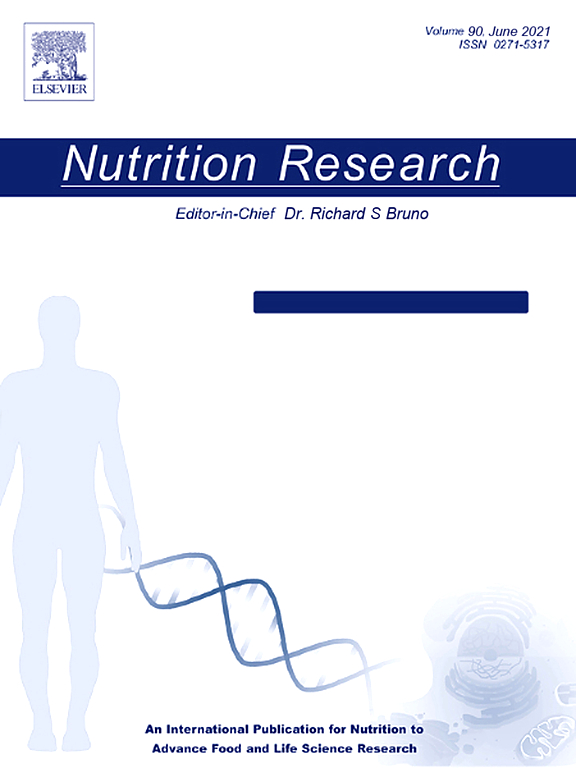High-Fat
How to submit an article:
- Registered users can submit any published journal article that has a unique DOI (Digital Object Identifier) name or link to Research Hub.
- For example, you can paste the full DOI link:
https://doi.org/10.1109/5.771073or just the DOI name:10.1109/5.771073into the field above and click submit. - The person who is first to submit a valid article to Research Hub will forever be credited for it, and every article submission earns you +6 Research Points.
Related Topics
Published research studies are articles that present the findings of original research that has undergone a peer-review process and has been made publicly available in scholarly journals, books or other media.

Analysis of Chemical Constituents of Chrysanthemum morifolium Extract and Its Effect on Postprandial Lipid Metabolism in Healthy Adults
2023 Jan 06 Molecules Chen L, Sun J, Pan Z, Lu Y, Wang Z, Yang L, et al.
Clinical Study Cholesterol Antioxidant ChrysanthemumChrysanthemum extract can be utilised as a natural ingredient to lessen post-meal cholesterol levels and enhance antioxidant status, after eating a high-fat meal.

Carotenoids in orange carrots mitigate non-alcoholic fatty liver disease progression
2022 Sep 26 Frontiers in Nutrition Balbuena E, Cheng J, Eroglu A
Experimental Study Animal Study Carrot Orange NAFLDCarotenoid-rich foods like orange carrots were more effective in mitigating Non-alcoholic fatty liver disease than those with low carotenoid levels.

Cooked Adzuki Bean Reduces High-Fat Diet-Induced Body Weight Gain, Ameliorates Inflammation, and Modulates Intestinal Homeostasis in Mice
2022 Jun 09 Frontiers in Nutrition Zhao Q, Liu Z, Zhu Y, Wang H, Dai Z, Yang X, et al.
Animal Study Metabolic Syndrome Obesity Anti-Inflammatory Fatty Liver Disease Gut Microbiota Adzuki BeanCooked adzuki beans contribute notably to preventing obesity and regulating gut microbiota composition, while also alleviating systemic inflammation and metabolic disorders.

Naoxintong Capsule Alternates Gut Microbiota and Prevents Hyperlipidemia in High-Fat-Diet Fed Rats
2022 Mar 21 Frontiers in Pharmacology Lu Y, Wan H, Wu Y, Yang J, Yu L, He Y, et al.
Naoxintong Capsule (NXT) was effective in regulation of gut microbiota and prevention of hyperlipidemia in high fat diet (HFD) fed rats. The present work might provide novel insights into the anti-hyperlipidemia effect of TCM and afford new scientific evidence for clinical application of TCM.
Animal Study Naoxintong Capsule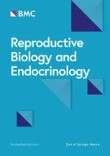
Icariin improves testicular dysfunction via enhancing proliferation and inhibiting mitochondria-dependent apoptosis pathway in high-fat diet and streptozotocin-induced diabetic rats
2021 Nov 09 Reproductive Biology and Endocrinology He W, Liu H, Hu L, Wang Y, Huang L, Liang A, et al.
These results suggest that Icariin (ICA) could attenuate male reproductive dysfunction of diabetic rats possibly via increasing cell proliferation and decreasing cell apoptosis of testis. ICA potentially represents a novel therapeutic strategy against DM-induced testicular damages.
Animal Study Testicular DysfunctionResearch insights are moderated by the Research Hub team and offer an at-a-glance overview of interesting research findings.

2023 Molecules
Chrysanthemum extract can be utilised as a natural ingredient to lessen post-meal cholesterol levels and enhance antioxidant status, after eating a high-fat meal.
Clinical Study Antioxidant Cholesterol Chrysanthemum
Analysis of Chemical Constituents of Chrysanthemum morifolium Extract and Its Effect on Postprandial Lipid Metabolism in Healthy Adults
Chen L, Sun J, Pan Z, Lu Y, Wang Z, Yang L, et al.

2022 Frontiers in Nutrition
Carotenoid-rich foods like orange carrots were more effective in mitigating Non-alcoholic fatty liver disease than those with low carotenoid levels.
Experimental Study Carrot NAFLD Orange
Carotenoids in orange carrots mitigate non-alcoholic fatty liver disease progression
Balbuena E, Cheng J, Eroglu A

2022 Frontiers in Nutrition
Cooked adzuki beans contribute notably to preventing obesity and regulating gut microbiota composition, while also alleviating systemic inflammation and metabolic disorders.
Animal Study Adzuki Bean Anti-Inflammatory Fatty Liver Disease Gut Microbiota Metabolic Syndrome
Cooked Adzuki Bean Reduces High-Fat Diet-Induced Body Weight Gain, Ameliorates Inflammation, and Modulates Intestinal Homeostasis in Mice
Zhao Q, Liu Z, Zhu Y, Wang H, Dai Z, Yang X, et al.

2021 Nutrients
Adzuki beans, when added to a high-fat diet, lessen obesity, improve liver function, enhance insulin sensitivity, and balance gut microbiota.
Animal Study Adzuki Bean Gut Microbiota Obesity
Adzuki Bean Alleviates Obesity and Insulin Resistance Induced by a High-Fat Diet and Modulates Gut Microbiota in Mice
Zhao Q, Hou D, Fu Y, Xue Y, Guan X, Shen Q
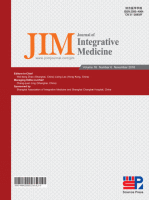
2021 Journal of Integrative Medicine
Shen Ling Bai Zhu San was found to inhibit inflammatory damage in nonalcoholic fatty liver disease, thus offering potential as a preventive and therapeutic treatment.
Animal Study Hepatoprotective NAFLD Shen Ling Bai Zhu San
Hepatic protective effects of Shenling Baizhu powder, a herbal compound, against inflammatory damage via TLR4/NLRP3 signalling pathway in rats with nonalcoholic fatty liver disease
Pan M, Zheng C, Deng Y, Tang K, Nie H, Xie J, et al.
Review Articles
Review articles summarise and critically evaluate the current state of research on a specific topic or field by synthesising multiple primary research studies.
Clinical Trials
Clinical trials are research studies that involve people and are conducted to evaluate the safety and efficacy of new treatments or interventions, such as drugs, medical devices, or behavioural therapies.
Study Protocols
Published study protocols are detailed plans that outline the objectives, methodology, statistical analyses, and organisation of a research study that have been made publicly available for others to review and use as a reference.
Presentation Slides

Clinical Study
Chrysanthemum extract can be utilised as a natural ingredient to lessen post-meal cholesterol levels and enhance antioxidant status, after eating a high-fat meal.
Chen L, Sun J, Pan Z, Lu Y, Wang Z, Yang L, Sun G

Experimental Study
Carotenoid-rich foods like orange carrots were more effective in mitigating Non-alcoholic fatty liver disease than those with low carotenoid levels.
Balbuena E, Cheng J, Eroglu A

Animal Study
Cooked adzuki beans contribute notably to preventing obesity and regulating gut microbiota composition, while also alleviating systemic inflammation and metabolic disorders.
Zhao Q, Liu Z, Zhu Y, Wang H, Dai Z, Yang X, Ren X, Xue Y, Shen Q

Animal Study
Adzuki beans, when added to a high-fat diet, lessen obesity, improve liver function, enhance insulin sensitivity, and balance gut microbiota.
Zhao Q, Hou D, Fu Y, Xue Y, Guan X, Shen Q

Animal Study
Shen Ling Bai Zhu San was found to inhibit inflammatory damage in nonalcoholic fatty liver disease, thus offering potential as a preventive and therapeutic treatment.
Pan M, Zheng C, Deng Y, Tang K, Nie H, Xie J, Liu D, Tu G, Yang Q, Zhang Y
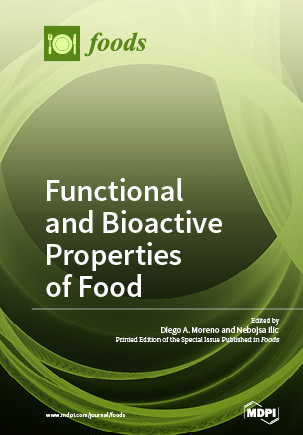
Animal Study
Traditional fermented products made from soybeans and rice, commonly consumed in the Japanese diet, show significant potential in preventing the progression of fatty liver disease.
Kanno R, Koshizuka T, Miyazaki N, Kobayashi T, Ishioka K, Ozaki C, Chiba H, Suzutani T

Network Pharmacology
Adzuki beans, rich in flavonoids and saponins, can potentially prevent obesity by inhibiting enzymes related to fat accumulation and enhancing lipid breakdown.
Liu R, Zheng Y, Cai Z, Xu B
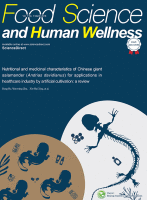
Experimental Study
Pu-erh tea water extracts could potentially enhance liver health and reduce oxidative stress in rats on a high-fat diet.
Jingjing Su, Xueqing Wang, Wenjun Song, Xiaoli Bai, Changwen Li
Executive Summary
Write an executive summary in the form of a blog article on the topic of "Research into Chinese medicine treatment for High-Fat" summarising the research below and using language that can be easily understood by patients and avoiding medical jargon using a professional and caring tone of voice.
Write an executive summary in the form of a blog article on the topic of "Researched Chinese medicine treatments for High-Fat" summarising the research below in an objective and easy to understand way, and using language that can be easily understood by patients. Group the article into Chinese medicine treatments first, followed by nutrition and other treatments. Avoid using medical jargon and use a professional and caring tone of voice.
Write me a concise but easy to understand executive summary on the topic of "Chinese medicine treatments for High-Fat" based on the following research that I will give you. Your summary should be 2 paragraphs long in Australian English spelling and include references to the studies.
A Clinical Study published in 2023 in the journal Molecules found that Chrysanthemum extract can be utilised as a natural ingredient to lessen post-meal cholesterol levels and enhance antioxidant status, after eating a high-fat meal. The researchers analyzed the composition of two types of Imperial Chrysanthemum (IC) extracts, specifically IC-P and IC-E, using an Ultra High-Performance Liquid Chromatography-Mass Spectrometry (UHPLC-MS) method. Next, they assessed these extracts' in vitro antioxidant activities using three different radical scavenging assays: 1,1-diphenyl-2-picrylhydraxyl (DPPH), 2,2-azino-bis-3-ethylbenzothiazoline-6-sulfonic acid (ABTS) and Hydroxyl Radical(HR). A group of 37 adults followed a randomized program and were divided into two: one consuming a high-fat (HF) meal alone and the other having the same meal but supplemented with IC extract. Blood samples from participants were taken at a fasting state and several more times up to 8 hours after the meal. The study found 12 compounds, including amino acids, flavonoids, and carboxylic acids, making up over 1% of the IC extracts. Compared to IC-E, IC-P exhibited significantly higher flavonoid content and strong free radical scavenging activity. Chrysanthemum consumption showed significant differences in post-meal glucose levels, triglycerides, total antioxidant capacity (T-AOC), and malondialdehyde (MDA) levels, with the IC-P supplement group showing lower postprandial glucose and improved serum antioxidant status.
A Experimental Study published in 2022 in the journal Frontiers in Nutrition found that Carotenoid-rich foods like orange carrots were more effective in mitigating Non-alcoholic fatty liver disease than those with low carotenoid levels. In this study, male C57BL/6J mice were randomly assigned to one of four experimental diets for a period of 15 weeks: a low-fat diet, a high-fat diet, a high-fat diet with 20% white carrot powders, or a high-fat diet with 20% orange carrot powders. Observations revealed that those mice on the high-fat diet enriched with carotenoids from the orange carrots gained less weight and displayed less hepatic lipid deposition compared to the white carrot group. Moreover, lower levels of triglyceride content were seen in the orange carrot group. The increase of particular proteins indicated that carotenoids found in orange carrots improved β-oxidation, thereby inhibiting NAFLD development more significantly. Further examination showed noticeably higher mRNA and protein levels of a particular transcription factor.
A Animal Study published in 2022 in the journal Frontiers in Nutrition found that Cooked adzuki beans contribute notably to preventing obesity and regulating gut microbiota composition, while also alleviating systemic inflammation and metabolic disorders. The methodology involved a controlled experiment where mice were fed diets of varying lipid content: a low-fat diet or a high-fat diet. The specific twist in this experiment was the inclusion or exclusion of cooked adzuki beans to their diet, ensuring 15% of the diet comprised of this. The duration of this dietary regimen was 12 weeks. In the discussion of results, it was discovered that cooked adzuki beans provided key beneficial effects. This included a significant inhibition of weight gain and hepatic steatosis, a reduction in high levels of specific markers such as serum triacylglycerol, alanine aminotransferase, and aspartate aminotransferase, providing a counter to systemic inflammation and metabolism-related endotoxemia commonly found in those consuming a high-fat diet. Moreover, the inclusion of adzuki beans positively affected the gut microbiota composition, reducing fat-inducing bacteria and enriching the gut with beneficial bacteria to help alleviate inflammation and metabolic disorders associated with high-fat diets.
A Animal Study published in 2021 in the journal Nutrients found that Adzuki beans, when added to a high-fat diet, lessen obesity, improve liver function, enhance insulin sensitivity, and balance gut microbiota. In the experiment, mice were placed on one of three diets for 12 weeks: a low-fat diet, a high-fat diet, or a high-fat diet supplemented with 15% adzuki beans. The study observed and tested for changes related to obesity, lipid accumulation, serum lipid and lipopolysaccharide levels, liver function, hepatic steatosis, glucose homeostasis, insulin sensitivity, and gut microbiota imbalances. Through a process called PICRUSt2 analysis, the researchers were then able to draw potential associations between changes in the gut microbiota and the metabolism of various substances. In the discussion of the results, the supplementation of adzuki beans to a high-fat diet had a significant impact. Obesity and lipid accumulation were visibly reduced, as were negative impacts on liver function and unhealthy levels of serum lipids and lipopolysaccharides. Notably, glucose homeostasis was improved through an increase in insulin sensitivity. The imbalances in gut microbiota, typically seen in a high-fat diet, were significantly reversed through adzuki bean supplementation. High-fat diet dependent taxa returned to a more normal status, which in turn suggested associations with the metabolism of carbohydrates, lipids, sulfur, and two types of amino acids.
A Animal Study published in 2021 in the journal Journal of Integrative Medicine found that Shen Ling Bai Zhu San was found to inhibit inflammatory damage in nonalcoholic fatty liver disease, thus offering potential as a preventive and therapeutic treatment. In the study, rats were put on a high-fat diet, with or without the addition of Shenling Baizhu powder or probiotics. Assessments were made at week 16, using an echo magnetic resonance imaging analyser to examine body composition, a micro-computed tomography imaging system to measure whole body and liver fat, and a laser perfusion imager to study liver microcirculation. After this, the rats were sacrificed and biochemical markers in the blood as well as liver ultrastructure were evaluated. The expression of proteins associated with liver inflammatory signaling pathways were scrutinized via Western blot analysis alongside a high-throughput screening of 29 relevant inflammatory factors in liver tissue. The results indicated that supplementing with Shenling Baizhu powder reduced body weight, serum free fatty acid, and insulin resistance. It also improved liver microcirculation and ultrastructural abnormalities. Quantitative analyses manifested that the treatment lowered fat mass and visceral fat. Moreover, the powder reduced the expression of certain inflammatory signaling pathway-related proteins and modified the expression levels of some inflammatory cytokines found in liver tissues. Thus, indicating that Shenling Baizhu powder could inhibit the activation of inflammatory agents and suppress related expressions, making it potentially beneficial for the prevention and treatment of inflammatory damage and associated diseases.
A Animal Study published in 2021 in the journal Foods found that Traditional fermented products made from soybeans and rice, commonly consumed in the Japanese diet, show significant potential in preventing the progression of fatty liver disease. In the study, C57BL/6J mice were first acclimated for two weeks. Following this period, they were segregated into groups and fed on different diets for a duration of 20 weeks. These diets included a Normal Diet (ND), a High-Fat Diet (HFD), an HFD containing 5% of the fermented soybean and rice product (denoted as HFD+M), and an HFD with 5% of a pre-fermented form of the product (HFD+PFM). The focus was on assessing the impact of these diets on the development of fatty liver disease in the subjects. The mice consuming solely the high-fat diet developed the symptoms of a typical fatty liver, as anticipated. However, the mice fed with diets that included either the fermented soybean and rice product or its pre-fermented variety showed a substantial reduction in the progression of the fatty liver disease, notably in the female subjects. This was observed in terms of diminished liver weight. Moreover, a decrease was noted in the levels of leptin and resistin, hormones linked with obesity and insulin resistance, in the serum of these groups. The male subjects also showed resistance against fatty liver disease progression upon the consumption of these diets. This study therefore demonstrates the value of including such traditional fermented food products in the diet as possible deterrents against lifestyle-induced ailments like metabolic syndrome.
A Network Pharmacology published in 2017 in the journal Frontiers in Pharmacology found that Adzuki beans, rich in flavonoids and saponins, can potentially prevent obesity by inhibiting enzymes related to fat accumulation and enhancing lipid breakdown. The study involved both in vitro and in vivo experimentations. Flavonoids and saponins from adzuki beans were examined for possible inhibitory effects on pancreatic lipase and α-glucosidase activities, and noradrenaline-induced lipolysis. Additionally, an obesity model in mice, stimulated by a high-fat diet, was established to explore the beans' potential anti-obesity properties. Over a period of 8 weeks, changes in the mice's serum and liver lipid parameters were carefully monitored during the intervention process. The results demonstrated that extracts from adzuki beans could enhance the process of lipolysis. When administered orally to mice, the beans significantly lessened the total body weight and accumulation of adipose tissue compared to the group on a high-fat-diet. Changes were also observed in the lipid levels, both in serum and liver, with notable reductions in total cholesterol, triglycerides, low-density lipoprotein-cholesterol, and liver lipids. These findings suggest that adzuki beans' anti-obesity effects may be due to the inhibitory action of their flavonoids and saponins on α-glucosidase and pancreatic lipase activities, along with the lipid-metabolizing properties of their active components.
A Experimental Study published in 2016 in the journal Food Science and Human Wellness found that Pu-erh tea water extracts could potentially enhance liver health and reduce oxidative stress in rats on a high-fat diet. In this study, fifty SD rats were split into five distinct groups and subjected to a high-fat diet. Their body weights were noted daily. Researches measured the serum levels of malondialdehyde (MDA), glucose, catalysts such as alanine aminotransferase and aspartate aminotransferase, nitric oxide synthase, and pyruvate kinase. Besides, hepatic glycogen levels were assessed, along with the activity of liver enzymes like total superoxide dismutase, catalase, and glutathione peroxidase. These measurements were consistently undertaken for a duration of 12 weeks. The findings showcased a decrease in the body weight and fat index of rats after the administration of Pu-erh tea extract. The reduction in body weight and fat index was accompanied by a decrease in malondialdehyde and nitric oxide synthase levels. Interestingly, there was also a noticeable increase in the activities of hepatic total superoxide dismutase, catalase, and glutathione peroxidase. These findings suggest that the Pu-erh extract might reduce the oxidant stress state, inhabit lipid peroxidation, and protect liver health in rats. Simultaneously, the extracts seemed to boost the production of liver glycogen, enhance the activity of pyruvate kinase, and decrease glucose levels, thereby possibly safeguarding the liver from diseases linked to Type II Diabetes.
Moderation Tools
Topic
Sign In
Users not signed in are limited to viewing the 5 most recent items of content.
